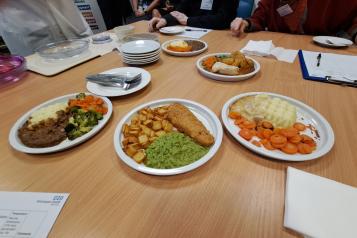Our response to proposed changes to maternity and neonatal services in North Central London
Details of the proposals are available at: nclhealthandcare.org.uk/start-well. The video below summarises the proposals.
The consultation sets out a number of proposals and two key options:
1. Bringing together neonatal and maternity services onto four hospital sites rather than the current five sites and small unit at Edgware. We understand that this is due to the declining birth rate. The suggested sites for closure of services are Whittington Hospital or Royal Free Hospital.
Option A: Maintaining services at Whittington Hospital
Option B: Maintaining services at Royal Free Hospital
2. Reorganising surgical services for babies and young children and concentrating these at University College Hospital and Great Ormond Street as North Central London’s centres of expertise, with surgery provision within local hospitals for older children.
3. The closure of the midwife-led birth unit in Edgware.
Our response
1. Reducing sites
We have read the consultation materials and are drafting a response based on our understanding of those materials and the likely impacts on Islington residents.
If the birth rate is continuing to decline and we expect this to continue based on wider demographic information, then we can understand the reasoning behind consolidating sites, particularly as significant investment is needed to modernise either of the sites mentioned. We hope that development of these facilities will start as soon as possible after the consultation has been heard and a decision made.
Our understanding is that in November 2022 Islington Council granted planning permission for Whittington Health to redevelop their maternity wing having secured £100mn funding for this work. We understood that some of the demolition work for this had already started. If this is the case it seems odd not to continue with this work to ensure people giving birth have the best possible facilities.
Closing the maternity unit at Whittington Health would potentially have a much greater impact on Islington residents than closing the Royal Free unit given the much larger number of Islington births taking place at Whittington Health. Keeping the Whittington site open potentially allows for greater continuity of care as Whittington Health provide health visiting and community nursing services to Islington residents. We understand that this is a decision impacting on North Central London residents, but have commented from an Islington perspective. Information from public health colleagues suggests that if the Whittington closed its maternity unit, our residents would be directed to services in East London where there is already an increasing birth rate. In addition, the Whittington can already support level 2 neo-natal care for premature and unwell babies, whereas the Royal Free would need to develop this area. Maintaining services at the Whittington is potentially beneficial to staff as there would be less upheaval for them.
Staffing has also been cited as an issue. Hopefully, the same number of staff over fewer sites could support more births and ensure a positive experience for those using the service. We understand that the Integrated Care Board has recruitment and retention of staff in all areas of healthcare as a high priority within its People Strategy and hope that this addresses some of the staffing issues but recognise that this is a national problem due to external factors (particularly training routes and terms and conditions) that are often beyond local control.
We note in the response from Public Health Islington, that the closure of the Whittington could have a disproportionate impact on residents already experiencing poorer health outcomes including high levels of deprivation and a high density of Black African (including Somali) and Black Caribbean women, groups which are known to experience poorer maternity outcomes. We agree with public health colleagues that should the Whittington close, investment would be needed in high-quality information and signposting, inclusive of community languages, and assistance and support with accessing, navigating, and using services should be provided to mitigate the risk of exacerbating existing inequity.
2. Re-organising surgical services for babies and young children
We understand that though the birth rate is declining, the complexity of births is increasing and that consolidating support for complex births could ensure better outcomes for those giving birth and for babies/ young children. Based on other models (such as stroke and the recent North Central London Orthopaedic Services Review) we can see why such specialist care could be better delivered by consolidating expertise. We would hope that the impact of this was demonstrable within the first few years. It seems sensible to retain neonatal care for premature and unwell babies with high dependency needs at all remaining sites.
3. Closing the Edgware birthing unit
As the birthing unit only manages around 50 births a year we can understand why this might also be closed. It’s also suggested that it often has to close due to staff shortages.


